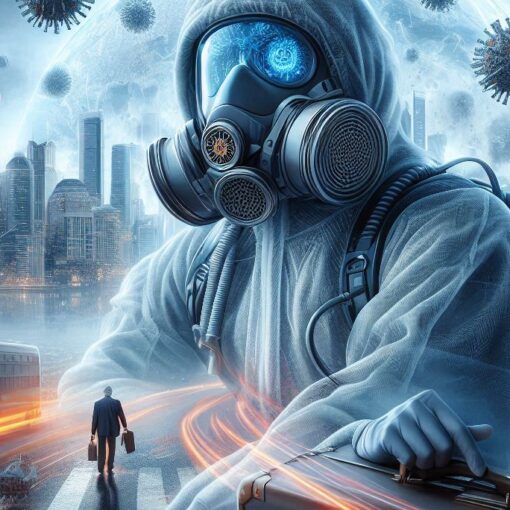Top Takeaways and Key Concepts
- Learn basic survival skills to build fires, filter water, and stay safe outdoors.
- Prepare for extreme weather by carrying emergency gear and understanding weather signs.
- Manage water wisely using purification tools and collecting clean sources safely.
- Practice food preservation to prevent waste and store long-lasting emergency supplies.
- Create communication plans so your group stays connected when technology fails.
Summary of This Article
This article explains how developing survival skills can help you navigate the challenges of the climate crisis with confidence. It highlights the importance of learning basic survival techniques like fire-making and first aid, preparing for unpredictable weather, and managing clean water and food storage. It also emphasizes the value of planning communication strategies and building community resilience to stay safe and supported during emergencies. With preparation and knowledge, anyone can handle changing climate conditions more effectively.
Short Video Version of this Article
Navigating the climate crisis? It’s like being in a corn maze with a blindfold on. You think you know the way, but one wrong turn, and boom—you’re stuck in the “pothole of despair.” Not fun, right?
Please Note: This post may contain affiliate links. If you click one of them, we may receive a commission at no extra cost to you. As an Amazon Associate, I earn from qualifying purchases.
I’ve spent plenty of weekends camping in all kinds of weather. Seriously, I’ve dealt with sunburns and even full-blown monsoons. Trust me, knowing some survival skills isn’t just helpful. It’s a must.
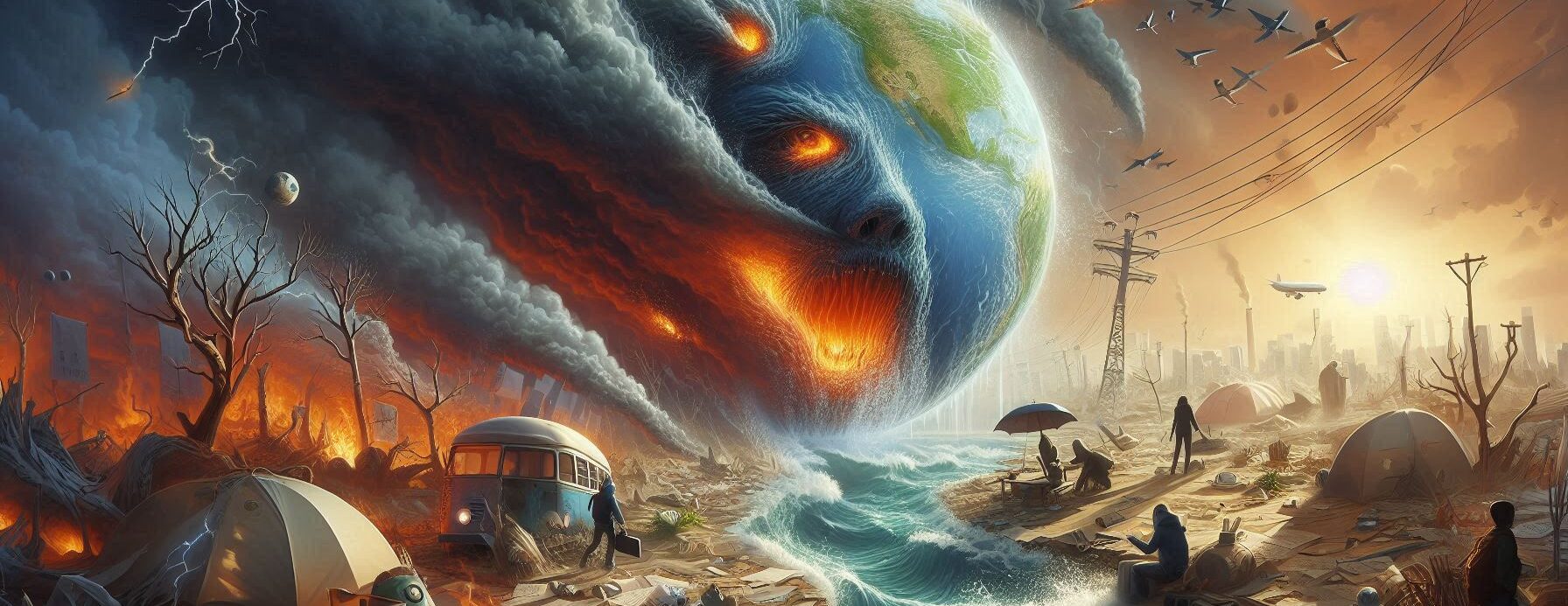
Picture this: You’re out there, and suddenly, it starts pouring. You don’t want to be scrambling for cover or wishing you’d packed that rain poncho. That’s why planning ahead makes such a difference.
Some skills can be super simple. Do you know how to build a fire? It’s more than just scary matches and smoke. A warm fire can not only heat you up but also lift your spirits. Nothing beats roasting marshmallows around a campfire, right?
How about finding clean water? It’s key to staying healthy. Maybe you can learn how to filter water using basic supplies. Or how to find natural sources. Just think of it as a little adventure!
Navigating changes in weather is tough, too. Understanding how to read the sky or the weather patterns can be like having a tiny crystal ball. If you know rain is coming, you can set up your tent better or gather your gear.
Let’s not forget about first aid. Knowing how to take care of those bumps and bruises means you can focus on enjoying the great outdoors, not worrying if someone has a scrape. Plus, it feels good to be prepared!
These skills are your toolbox for life, helping you thrive in a world that’s always shifting. Each little thing you learn is like a step out of that confusing maze. You’ve got the strength to navigate it all. And you don’t have to do it alone. Together, we can share what we know and help each other out!
Understanding Extreme Weather Patterns
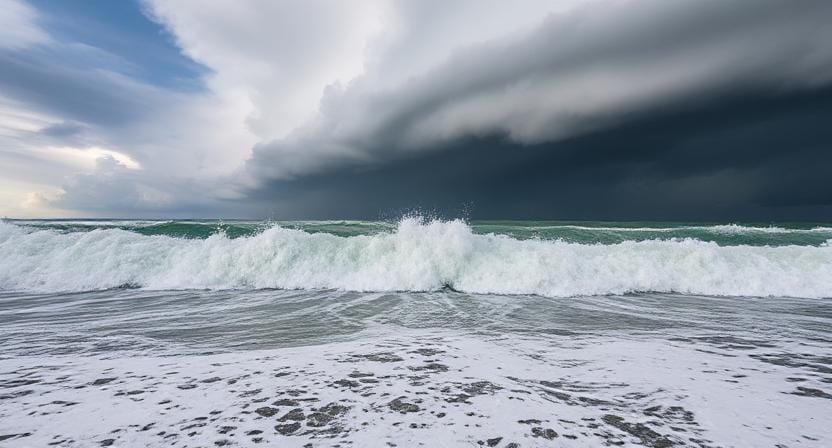
Let’s start by talking about very bad weather. Do you remember when summers were all about ice cream and barbecues? Now they look more like a race to see who can go the longest without turning into a pool of perspiration. Have you ever really attempted grilling burgers when it’s 110 degrees outside? It’s not “sizzle,” it’s more like “sizzle and cry.”
Being able to read weather indicators can make a big impact. Dark clouds are accumulating in a scary way? It may be rain, or it could be smoke from your neighbor’s barbecue.
It’s important to be ready for anything. The appropriate gear may really improve your day. Consider clothes that are waterproof and shoes that are strong. Believe me, you’ll be glad when you step in a puddle and your feet stay dry.
It might be a huge shock when it rains. And then there are floods that happen quickly. They sneak up on you, like a cat that wants to cuddle. One minute you’re enjoying the sun, and the next, water is flowing at your feet.
That’s why it’s so useful to have an emergency pack. It’s like owning a small treasure chest. Bring along some snacks, water purification tablets, and maybe even a book. You know, something to do while you wait for help. It makes you feel better.
Picture this: you’re stranded for a while, but you have a book to read. You can forget about the rain and become lost in a story. That could truly help you pass the time.
Also, don’t forget about real-life things. If the lights go out, having extra batteries or a torch could make a big difference. Those tiny preparations can feel like having a safety blanket ready for when things go a little hectic.
We never know what might happen next. You can enjoy every journey without worrying later if you get ready now. It’s all about staying positive, even when the weather isn’t great.
Water Management Skills
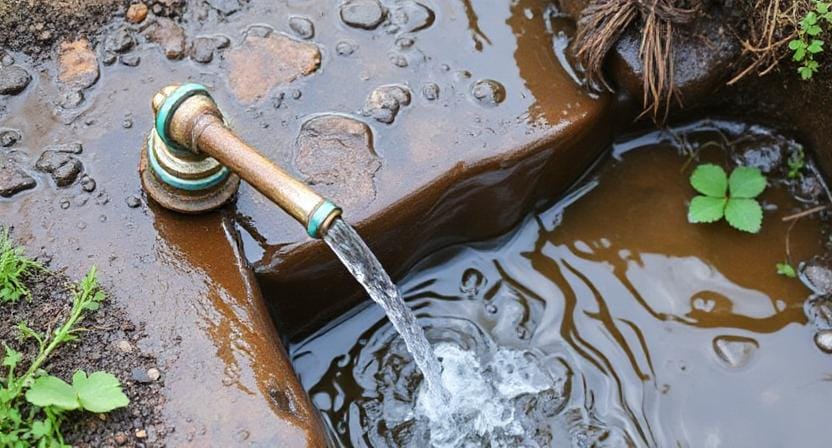
Next up: water management skills. With climate change causing droughts in some areas and floods in others, knowing how to source clean drinking water is crucial. If you’ve ever tasted swamp water (I don’t recommend it), you’ll understand why this skill is important.
One effective method is collecting rainwater using barrels or other containers if local laws allow it—because nothing says “survivalist” like setting up your own mini reservoir on the back porch! Additionally, investing in portable water filters or purification systems can turn any questionable stream into refreshing hydration worthy of an Instagram post.
Oh man, I’ve totally been there. You set out on a beautiful hike, feeling excited, and then it hits you. No water bottle. Just sitting on the kitchen counter, right next to those delicious snacks. Ugh!
Having extra supplies is a game-changer. You wouldn’t want to be out there, feeling thirsty and tired. It sneaks up on you, doesn’t it? Before you know it, dehydration hits. And trust me, it’s no fun.
It can happen real quick, like when you’re halfway up that hill, panting, wishing you had a cool drink. Your body needs water, and it’s not just about being comfortable. It can get serious.
So, what’s the fix? Carrying extra water is like having a secret superpower. A little extra weight is totally worth it when you’re craving that refreshing sip. You can even stash some snacks in your pack, too. They’re perfect for that energy boost when you need it most.
Just imagine. You’re hiking, feeling great. Then you pull out a snack—maybe some trail mix or a granola bar. It lifts your spirits. You keep going, feeling like a champion!
Next time you head out, double-check your pack. Make it a fun little ritual. It’s all part of the adventure, right? And it feels nice knowing you’re prepared.
Food Preservation Techniques
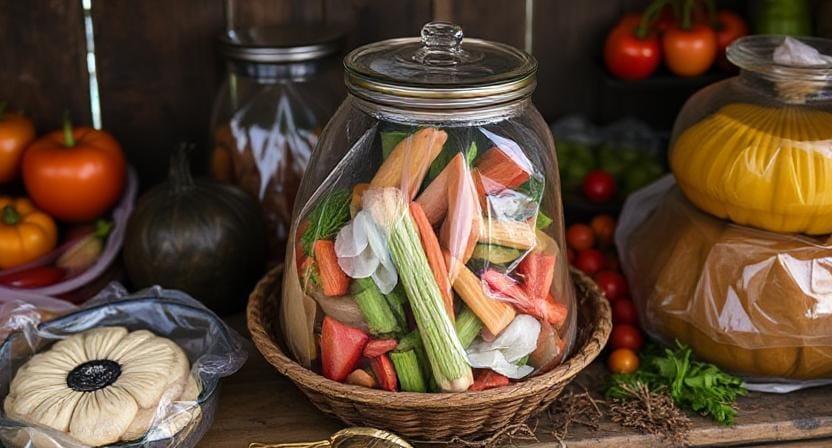
Now we move on to food preservation methods, or how to keep foods safe to eat long after their expiration date. What do you do when life delivers you lemons (or an unexpected crop from your backyard garden)? Lemonade? Yes! But you should also think about pickling those cucumbers before they go bad!
You may store food for longer by learning how to dehydrate fruits and vegetables. This will keep raccoons from coming to your house for late-night nibbles (believe me on this).
Isn’t that right? Think about how nice it would be to go camping. The sun is going down, the fire is blazing, and then—bam! A group of fuzzy little thieves comes up and gleefully eats your granola bars. Not cool at all.
It can be hard to keep your snacks safe. A higher place to store things or a lock box? Those stealthy raccoons are too good at finding things. It’s humorous and heartbreaking at the same time when you find out they’ve stolen your stuff.
Now, let’s speak about how things ferment. It’s like a scientific project you can do in your kitchen! You put some magic (or vinegar) on fruits or vegetables and watch them change. It’s fun to see bubbles and things shift. Imagine making your own pickles or kimchi! Yum.
But if things start to bubble too much or smell bad, uh-oh. It’s time to take a step back. That’s a clue that you should probably get yogurt from the store instead. It’s better to be safe than sorry, right? Also, it makes things easier for you.
It’s great to try new things, but it’s also fine to remain with what you know works. You can have fun in the kitchen and still have some fundamental things on hand. The balance is the most important thing. Enjoy your nibbles and remain one step ahead of those raccoon thieves!
Emergency Communication Plans

Let’s talk about emergency communication plans because nothing spells chaos quite like losing cell service during a family camping trip. What happens when Uncle Bob gets lost trying to find his way back from the bathroom? Do we send out search parties armed with flashlights and granola bars?
You know how it goes. You’re out hiking, and suddenly—poof! Your phone won’t work. Totally the worst. That’s when having spots to meet up is super handy. If everyone knows where to go, it takes the stress out of wandering around. Imagine having a simple map with trails back to the campsite. Easy peasy.
And practicing those phrases? Really smart! “Where did everyone go?” can go from calm to panic pretty quickly. It’s like a fun little rehearsal. You might laugh now, but trust me, when things get real, it’ll help a ton.
Two-way radios are gems in these situations. You won’t believe how fast cell service can disappear. It’s like my willpower when chocolate cake is around—gone in a flash! These radios keep everyone in touch. And we all know Aunt Linda has a talent for exploring off the beaten path (again).
With radios, you can just say, “Hey, where are you?” instead of feeling lost. You don’t want to be yelling into the woods like a cartoon character. Staying connected makes adventures so much better. You can relax a bit, even if you bump into some wild surprises. Just imagine: the group laughing together instead of panicking. That sounds much more fun!
Building Community Resilience
Last but not least, we can’t forget about community resilience! No one can live alone, after all. Tom Hanks had a volleyball named Wilson, and even he had problems. Getting to know your neighbors and building support networks might help you trust each other and share resources when things go tough.
Taking part in local seminars that teach people how to be more environmentally friendly helps people who have similar interests (like avoiding disasters together) get to know each other better.
You know, putting together activities for the community is a terrific way to inspire people to think about climate change. It really does influence all of us, doesn’t it? Imagine having a big potluck with your neighbors where everyone brings their favorite dish created using products from the area. Yum!
While you consume such tasty meals, individuals can talk about the weather. You may give people advice on how to save electricity or use less water. It’s like being on a giant squad. We all want to live in a healthy location, don’t we?
It feels good to talk about ways to change our lives. You give your ideas, and someone else builds on them. Instead of just fretting about stuff, it turns into a joyful conversation.
It’s a little unsettling to think about all the crazy weather variations. And being ready helps calm that fear a little. You can learn how to effectively store food and get ready for bad weather. In a pinch, simple abilities can actually help.
It all feels better when you connect with those that care. It really helps to know that you’re not the only one going through this. We can work together to find a way to deal with these changes. It’s about taking action instead of being afraid. A little snack time brainstorming can do a lot of good!
Developing survival skills is essential for staying safe during climate-related emergencies. With basic knowledge of fire-building, water purification, food storage, and first aid, anyone can become more self-reliant in uncertain conditions. Planning communication strategies and understanding weather patterns also help people prepare for unexpected challenges and protect their families.
Frequently Asked Questions
What basic survival skills should I learn first?
Start with essential skills like building a fire, purifying water, administering basic first aid, and creating emergency shelters. These provide safety and comfort during unexpected situations.
How can I prepare for extreme weather events?
Pack emergency gear such as waterproof clothing, a flashlight, extra batteries, and a first aid kit. Learn to read weather signs like darkening skies and sudden temperature drops.
What are safe ways to collect and purify water?
Use portable water filters, purification tablets, or boiling to make water safe. Collect rainwater when allowed and avoid contaminated sources near industrial or agricultural areas.
Why is food preservation important in emergencies?
Food preservation reduces waste and ensures access to long-lasting supplies. Techniques like dehydration, canning, and proper storage protect food from spoilage and pests.
How do I create an emergency communication plan?
Choose a family meeting point, share emergency contacts, and carry simple tools like two-way radios. Review the plan regularly so everyone knows what to do if phones fail.
What should I include in a survival kit?
Pack water, non-perishable food, a first aid kit, fire starters, a flashlight, extra clothing, and basic tools. Tailor your kit to your climate and travel conditions.
How does community support improve survival during crises?
Building relationships with neighbors helps share resources and skills. Communities that plan together are better prepared and recover faster after natural disasters.
Suggested Resources:
The Climate Crisis: What You Need to Know
https://www.nationalgeographic.com/environment/article/climate-crisis-what-you-need-to-know
Emergency Preparedness: A Guide
https://www.ready.gov/
Sustainable Living Tips
https://www.treehugger.com/sustainable-living-tips-4863444

Kevin Collier is a seasoned outdoor enthusiast and writer for Trekbug.com, specializing in outdoor adventures, survival strategies, and prepping insights. With a deep love for nature and a commitment to self-sufficiency, Kevin empowers readers to embrace the wilderness confidently. He shares valuable tips, practical techniques, and inspiring stories, helping both novice and experienced adventurers develop essential skills for surviving and thriving in the great outdoors.





